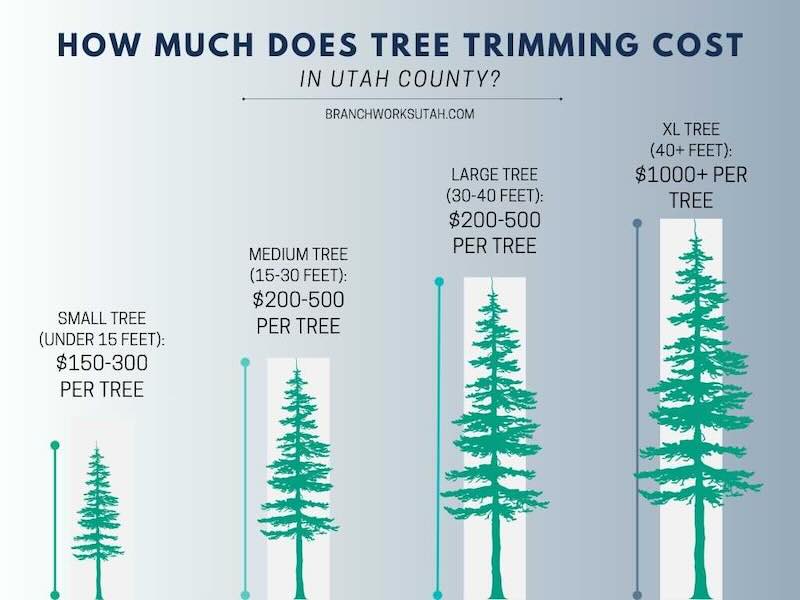Featured
Table of Contents
- – What Affects Tree Trimming Prices In Suwanee, GA
- – Suwanee, GA Tree Trimming: Worth The Cost
- – DIY Vs. Professional: Stump Grinding In Suwan...
- – Expected Costs For A Tree Removal In Suwanee,...
- – Suwanee, GA Tree Cutting Payment Terms
- – Budget-Friendly Tree Service In Suwanee, GA
- – Highest-Rated Stump Grinding Reviews In Suwan...
- – Best Stump Grinding Services In Suwanee, GA:...
- – Permit Costs For Stump Removal In Suwanee, GA
- – Top Stump Removal Questions In Suwanee, GA A...
- – Fair Tree Clearing Costs In Suwanee, GA
- – What Affects Tree Removal Prices In Suwanee,...
- – Additional Tree Clearing Warranty Costs In S...
- – Suwanee, GA Tree Removal Cost Guide
- – How Much Does A Stump Grinding Cost In Suwan...

The subsections listed below provide more comprehensive details about pricing, including an average variety for each. TypeAverage Elimination CostPineConiferPalmMagnoliaArborvitaeAshCedarSweet GumEucalyptusSycamoreCypressOakMaplePoplar You can anticipate to pay between to remove a pine, depending upon its size. Getting rid of a pine is among the more budget friendly tasks unless it is one that has actually been around for several years and is quite big.
What Affects Tree Trimming Prices In Suwanee, GA
Pines likewise have a tap root that grows deep into the soil, which can show to be more difficult to get rid of. The procedure itself involves an expert cutting the tree, clearing the base, cutting the surface roots, removing the stump, and lastly dealing with the soil. Without an expert hand, you run the risk of leaving pine seedlings behind, which will fall from the roots of distressed pines.
Suwanee, GA Tree Trimming: Worth The Cost
The U.S. national average for conifer elimination is around to have the conifer reduced, carried away, and the stump ground or gotten rid of entirely. Conifers are typically simpler to get rid of, and even though they can grow rather tall, they do not cost a fortune to remove. Conifers consist of pine, spruce, fir, and juniper trees.
DIY Vs. Professional: Stump Grinding In Suwanee, GA
While conifers are stunning, they kill native plants and certain kinds of turf. This is due to the fact that they need a lot of water and nutrients to survive, so they seep it off surrounding plants. They likewise have an expansive network of roots, which can impact your home's structure. The typical cost of palm removal depends upon the height as much as the type, varying from.
Expected Costs For A Tree Removal In Suwanee, GA
That is why it is very important to know which type you are eliminating. While you do not require an herbicide to eliminate a palm tree, there are some actions your removal expert will need to require to ensure the job is done correctly. There are 2 methods they can eliminate them: by chopping them down or digging them up.
Suwanee, GA Tree Cutting Payment Terms
From there, they get rid of the real tree and then the stump. Anticipate to pay between to eliminate this type of tree, depending on the precise size and details of the task.
Budget-Friendly Tree Service In Suwanee, GA
There are 3 types: green, white, and black ash. With its gray-tinged bark, its leaves are green or purple in the spring and golden yellow or purplish-red in the fall.
Highest-Rated Stump Grinding Reviews In Suwanee, GA

The bark is softer, and it flowers later on in the year - tree removal. Due to the variation in height, the removal cost variance is broad from. A coniferous, evergreen tree, the cedar is a sturdy types. Real cedars take pleasure in greater altitudes, primarily in the Mountain ranges and the Mediterranean. A true cedar can grow as high as 160 feet in height and is often planted in the United States as a landscape option.
Best Stump Grinding Services In Suwanee, GA: Pricing
The growth of incorrect cedars varies from 50 feet as much as 230 feet high. Homeowners may pay anywhere from, depending on the roots. With star-shaped leaves and sensational fall colors, the sweet gum is considered a medium to big tree. Delighting in full sun, the sweet gum can not tolerate pollution.
Permit Costs For Stump Removal In Suwanee, GA
It has a big root base of 40 to 50 feet, which impacts the elimination cost. Generally, it costs between to get rid of a eucalyptus. Eucalyptus are not common all over, but they are rather large compared to others, which is why even the smaller ones are so expensive to get rid of. Originally from Australia, eucalyptus are intrusive plants that grow in thick groves that take out native plants.
Top Stump Removal Questions In Suwanee, GA Answered
There are a handful of methods to do this, including burning, pulling, grinding, or killing them with herbicide. Expect to pay in between to get rid of sycamores, based upon the height, trunk size, and amount of work involved. Sycamores are among the biggest hardwood trees, generally ranging from 60 to 100 feet tall and as large as 15 feet.
Fair Tree Clearing Costs In Suwanee, GA
The first two steps will expose the withins of the tree and cut off the circulation of nutrients up the trunk. From there, an expert applies herbicide to eliminate the tree and reduce the trunk. Then, they will eliminate the stump. Otherwise, brand-new sprouts may grow from it. Cutting down and eliminating a mature cypress could cost as much as.
What Affects Tree Removal Prices In Suwanee, GA
There are numerous different kinds of Cypress trees, however the most widespread are the Leyland, Arizona, Bald, and Italian. The Bald Cypress grows in swampy or really wet locations while the others take pleasure in a dry, warm, or hot climate (tree service). They can grow as tall as 80 to 100 feet high
Additional Tree Clearing Warranty Costs In Suwanee, GA

Prone to diseases, the Cypress is among the most treasured woods for furnishings. The typical oak grows to around 60 feet, and depending on the complexity of the removal, it costs an average of to eliminate. The precise size of your oak and the effort required to fell it affect what you will really spend for elimination in addition to any additional services like stump grinding.
Suwanee, GA Tree Removal Cost Guide
Access to the trees and the roots will likewise impact the overall expense. Maples are normally amongst the more costly trees to get rid of due to the fact that of their size and the work included in the removal.
How Much Does A Stump Grinding Cost In Suwanee, GA
Growing as high as 90 to 115 feet, these enormous timbers are mainly found in North America and consist of the aspen, cottonwood, and balsam trees. The process to get rid of trees involves all the cutting and cutting of the branches and trunk, bringing it down to a stump.
Table of Contents
- – What Affects Tree Trimming Prices In Suwanee, GA
- – Suwanee, GA Tree Trimming: Worth The Cost
- – DIY Vs. Professional: Stump Grinding In Suwan...
- – Expected Costs For A Tree Removal In Suwanee,...
- – Suwanee, GA Tree Cutting Payment Terms
- – Budget-Friendly Tree Service In Suwanee, GA
- – Highest-Rated Stump Grinding Reviews In Suwan...
- – Best Stump Grinding Services In Suwanee, GA:...
- – Permit Costs For Stump Removal In Suwanee, GA
- – Top Stump Removal Questions In Suwanee, GA A...
- – Fair Tree Clearing Costs In Suwanee, GA
- – What Affects Tree Removal Prices In Suwanee,...
- – Additional Tree Clearing Warranty Costs In S...
- – Suwanee, GA Tree Removal Cost Guide
- – How Much Does A Stump Grinding Cost In Suwan...
Latest Posts
Dumbarton, VA Stump Removal Reviews And Costs
Manassas, VA Arborist Review: Pricing
Stump Grinding Pricing In Archdale, NC
More
Latest Posts
Dumbarton, VA Stump Removal Reviews And Costs
Manassas, VA Arborist Review: Pricing
Stump Grinding Pricing In Archdale, NC